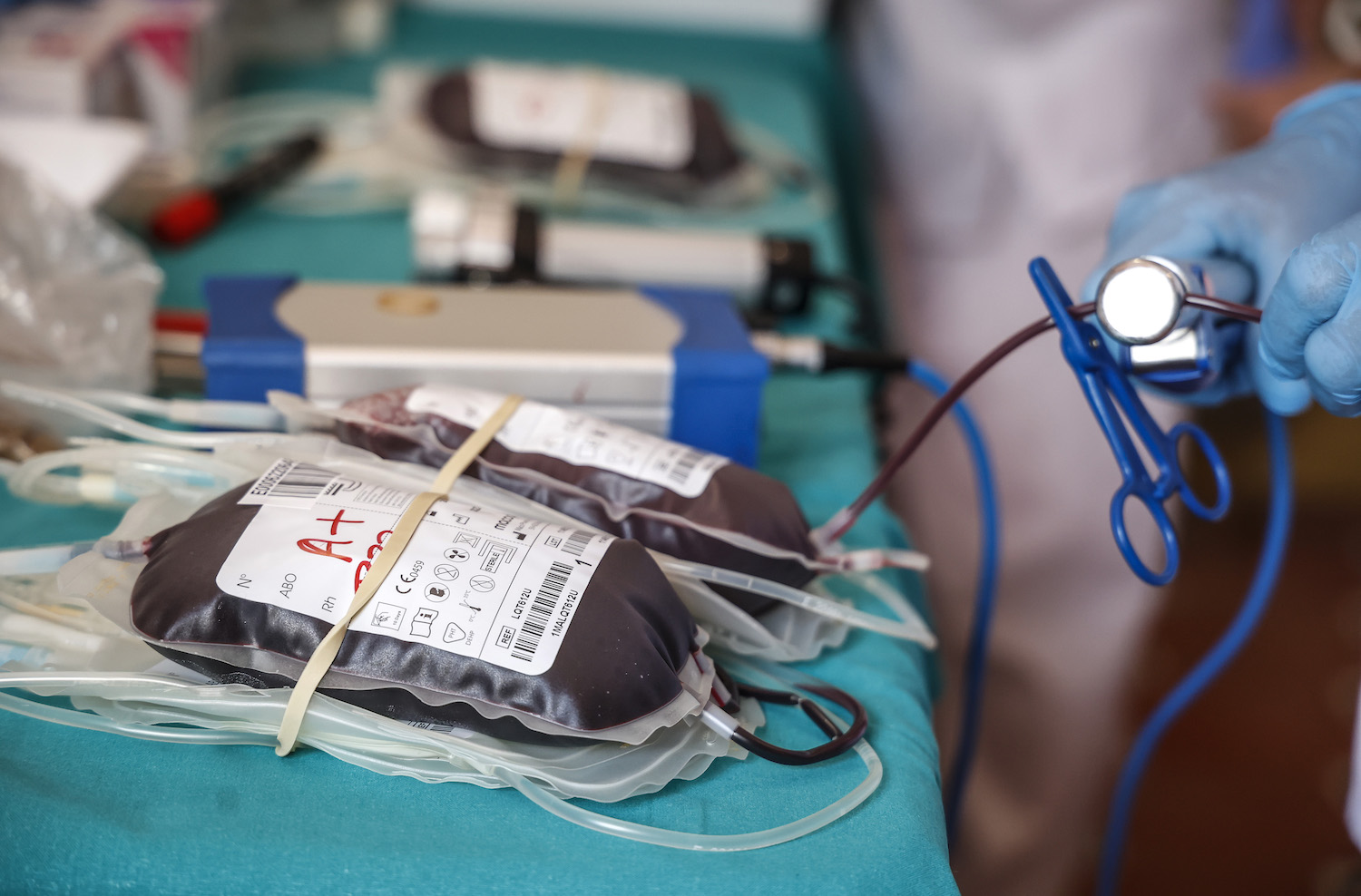The long road to justice for survivors of contaminated blood scandal
Interim compensation will be paid to victims before the inquiry concludes in 2023

A free daily email with the biggest news stories of the day – and the best features from TheWeek.com
You are now subscribed
Your newsletter sign-up was successful
Surviving victims of the infected blood scandal will be awarded interim compensation of £100,000, the government has announced.
By the end of October, the survivors, a group of around 4,000 people, will receive compensation for having been mistakenly infected with blood-borne viruses like HIV and hepatitis C. The partners of deceased victims will also receive the payout, however, the parents and children of victims will currently receive nothing.
Family members of victims have accused the government of “perpetuating the scandal” by not recognising them, The Guardian said, after a “40-year battle” to win compensation for those affected by the mix-up.
The Week
Escape your echo chamber. Get the facts behind the news, plus analysis from multiple perspectives.

Sign up for The Week's Free Newsletters
From our morning news briefing to a weekly Good News Newsletter, get the best of The Week delivered directly to your inbox.
From our morning news briefing to a weekly Good News Newsletter, get the best of The Week delivered directly to your inbox.
The “urgency of the need” to make the payments was recognised by ministers, with survivors “dying at the rate of one every four days”.
The interim compensation was awarded on the recommendation of an inquiry which began in 2019 and is set to produce its final report in mid-2023.
What happened?
The infected blood scandal is potentially the “worst treatment disaster in the history of the NHS”, said Nick Triggle, a health correspondent at the BBC.
In the 1970s and 1980s, thousands of NHS patients suffering from blood disorders, such as haemophilia, were given contaminated samples of the clotting treatment called Factor VIII, leading to HIV and hepatitis C infections. The treatment was used to enable patients’ blood to clot quicker, avoiding “lengthy stays in hospital to have transfusions”, said the BBC. The contaminated blood products were also administered to people requiring transfusions for operations or childbirth.
A free daily email with the biggest news stories of the day – and the best features from TheWeek.com
The Factor VIII treatment was imported from America and involved pooling together the plasma samples of thousands of different donors, “including some in high-risk groups” for infection with blood-borne viruses “such as prisoners”.
Up to 6,000 people are known to have been infected after being treated with contaminated blood products, and around 2,400 people have died.
When was the inquiry launched?
The inquiry into the scandal was launched after years of campaigning by victims and their families in 2018 and has been led by former judge Brian Longstaff. Victims called for the inquiry after claiming that “the risks were never explained and the scandal was covered up”.
In July, the inquiry recommended the government issue interim payments “without delay” to the surviving victims before deciding on final compensation when the report concludes. An open letter by campaigners was then delivered to Boris Johnson, urging payments to be made as quickly as possible with over 400 victims dying since 2017.
The delay between the inquiry’s recommendation and the government’s announcement was because ministers had been “looking very closely at how best to right this historic wrong”, a government source told The Telegraph.
The government said in its announcement this week that the payments would be “tax-free and will not affect any financial benefits support an individual is receiving”.
What has the reaction been?
Johnson said making the interim payments was the government “taking action to do right by victims” but added that “nothing can make up for the pain and suffering endured” by victims.
The compensation was a “significant milestone” after decades of campaigning, Kate Burt, chief executive of the Haemophilia Society, told BBC Breakfast, adding that there should be “no further delay in looking into a full infrastructure for compensation” by the government.
Victim Richard Warwick told The Guardian that the interim payment was just the start of “meaningful compensation” and that it was “shameful” that it had “taken the government so long” to admit fault in the scandal. He accused the government of delaying payments because “the more people die the less they will have to pay”.
Parents and children of victims who have died will “continue to fight” for recognition and compensation. Campaigner Sue Threakall, whose husband died in 1991 after being treated with contaminated blood, told the BBC it is “not just about money” for bereaved family members, but “recognition of people whose lives have been destroyed”, including parents who lost children in the scandal and children who grew up without parents.
Lauren Palmer, whose parents both died of Aids as a result of the scandal, told Sky News that she had been unable “to lead a normal life”, questioning how the government had established “this hierarchy between bereaved families”.
Richard Windsor is a freelance writer for The Week Digital. He began his journalism career writing about politics and sport while studying at the University of Southampton. He then worked across various football publications before specialising in cycling for almost nine years, covering major races including the Tour de France and interviewing some of the sport’s top riders. He led Cycling Weekly’s digital platforms as editor for seven of those years, helping to transform the publication into the UK’s largest cycling website. He now works as a freelance writer, editor and consultant.